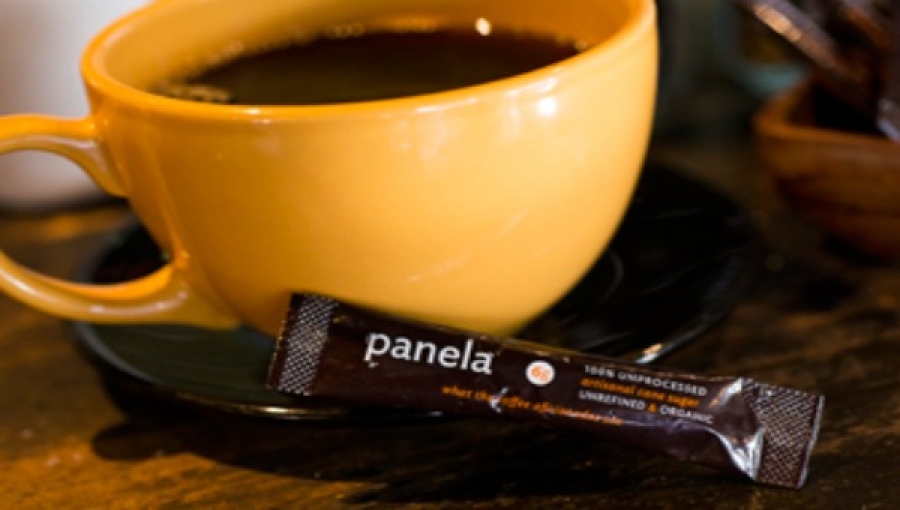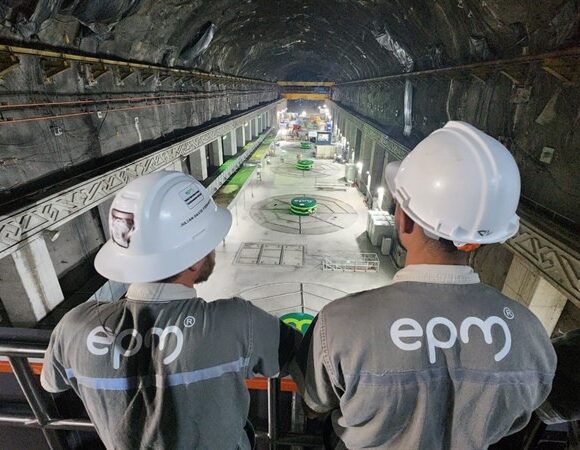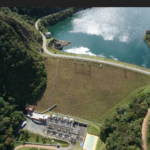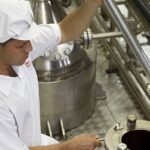Boosting Organic Panela Exports from Antioquia: U.S. Expat Charts New Course

U.S. expat Scott Unkefer – a former Coloradan and Floridian but now living in Medellin – is cranking-up novel projects that aim to expand production and exports of organic panela from Antioquia to U.S. and Canadian specialty food-and-beverage markets.
Panela (unrefined brown sugar) is well-known in Colombia and elsewhere in Latin America – with Colombia being the world’s biggest producer (about 1.4 million tonnes/year) and the single-biggest national consumer.
But “organic” panela is still relatively new to producer and consumer consciousness.
However, Unkefer’s “Just Panela” start-up company is beginning to change that perception — and current and future plans could expand organic panela production while simultaneously broadening consumer markets.
To date, “Just Panela” boasts of taking first-place in the New York “CoffeeFest 2016” for “best new consumable product,” and took second-place in “best new product, Fancy Foods New York 2016.”
But potentially bigger projects are on the horizon.
One example: the proposed “Gramalote Colombia” gold mining project – a partnership between South Africa-based AngloGold Ashanti and Canada-based B2 Gold – could involve relocating an existing panela production plant near the San Roque, Antioquia mining site, and then building an organic panela plant in cooperation with “Just Panela.”
According to Colombia’s Federacion Nacional de Productores de Panela (Fedepanela), some 120 sugar-cane farms representing 150 hectares of production — operating through 20 producer cooperatives in 10 Colombian departments (states) – already have achieved “organic” status, with several more in process of conversion.
“It’s expected that [growing] commercial demand for pulverized organic canela in countries such as South Korea will deliver better incomes and better quality of life” for organic cane growers and organic panela producers, according to Fedepanela.
That opportunity to improve local farmer and producer incomes while supporting “green” production is among the key factors underlying the organic panela business, as Unkefer explained to Medellin Herald in a November 6 interview.
Here is what Unkefer told us in response to our questions:
Medellin Herald: How and why did you get into the organic panela export business in Colombia, specifically here in Antioquia?
Unkefer: I moved to Medellin from Buenos Aires about five years ago — and discovered panela in going to the ‘Juan Valdez’ coffee shops. They have individual serving packets [of panela] there. I first thought it was just another packet of artificial sweetener. My curiosity got the best of me and finally asked the barista. He said ‘it’s sugar.’ I tried it, and realized the superiority in many applications to conventional, industrial, white, brown, or turbinado sugars.
Medellin Herald: While your web site indicates that ‘Just Panela’ originated in Colorado, where are your Colombian operations now?
Unkefer: We have our packaging facility in Rionegro [Antioquia] and our main office is in Poblado [Medellin]. We have full-time and part-time about six employees.
Medellin Herald: What do you see as your business niche, as opposed to all the other competitors in the panela business?
Unkefer: Panela cane sugar is and was a cultural heritage product for Colombians. But given where sweeteners have gone — maple sugar, coconut sugar, agave sugar, stevia, etcetera, replacing traditional industrial sugar where it can and should — panela represents a superior form of sugar in many applications, as in our markets.
Medellin Herald: What sort of volume of product are you selling and how has that changed since you started? Is it a strong, growing business and is it consistently profitable?
Unkefer: We have made I think five [container] shipments into the U.S. now, four of those being LTL [less than truckload] or less-than full 20-feet container, and one of those being a full container. We don’t plan on anything less than a 20-feet container shipments for efficiency’s sake.
But mastering that piece of the supply chain is the hardest part, especially with multiple SKUs (stock-keeping-unit product formats). We have our retail products and our bulk products. For example, Whole Foods Northeast region, some 45 stores or more, decided on short notice they were going to slot [our] product. We also had a dandelion-wine maker decide to use ‘Just Panela’ and order ten of our 12-by-50-pounds bags that we had on the ground. Being small in the sweetener-sugar space is a trick.
Medellin Herald: Tell us more about the Gramalote panela resettlement project. Are the panela producers happy about the project — that is, would their lives actually improve because of this?
Unkefer: I’ve been working with many different organizations over the last number of years that I’m trying to bring together on this. But the primary players are us, Gramalote — which consists of AngloAshanti and B2Gold — the community, and the paneleros.
As far as ‘are their lives going to be better after?’ That depends on Gramalote doing what we need them to do for the North American sweetener market. We know what these things are and how to do them, but neither the [cane] farmers nor Gramalote know. They need to have a consistent [organic panela] product: one with the same taste texture and ideally color. And definitely the same humidity level and granularity. They also need as many [organic and food-purity] certificates as possible.
Medellin Herald: What exactly is ‘organic’ panela? Is there something about the sugar cane production that is organic, or is it something else? How is it different than ordinary panela?
Unkefer: The funny part about ‘organic’ is if the producers stay organic, and don’t use pesticides or fertilizers, it ends up being cheaper. If they start using chemicals, then the initial yields are better, but then they have to buy the chemicals forever and it ends up less economical. This is according to our farmers, but I’m not sure this is true or not.
‘Ordinary’ panela is ‘bloque.’ That is, it comes in disks or bricks. We only deal with ‘pulverizada’ [pulverized]. It has been an arm-wrestle to get the farmers to come to terms on this. They like doing ‘hockey pucks’ as we call them because they’re used to that. It’s how they’ve done it forever.
The international market is coming-around to panela. The Australians and South Koreans and Spain are, I believe, the three biggest consumers. We are the ones spearheading it in the U.S. and Canadian retail and food product/foodservice markets.
Medellin Herald: Is there any sort of brand for Colombian panela that might be compared to the ‘Juan Valdez’ brand for Colombian coffee?
Unkefer: I would say ‘Doña Panela’ is a well-known brand here.
Medellin Herald: Are consumers in the USA, Canada, Europe, Japan, or elsewhere becoming more knowledgeable about the difference between white refined sugar, ‘brown’ sugar, panela or other types of sweeteners, such as ‘organic agave sweetener’ and others? Are these customers more ‘environmentally oriented’ or ‘health oriented’ than some other types of customers?
Unkefer: Thanks to us they are. We do a lot of teaching. It’s our biggest hurdle. The ‘alternative sweeteners’ market has just come around in the last few years. Coconut sugar, which has been effectively marketed by the Philippines government, has done well. The alternative sweeteners market is at US$1 billion now and includes maple sugar, agave sugar, etcetera. People love to be more environmentally oriented. The paneleros, for example, use the cane stalk to fire the kettles. This represents a sustainable process. They don’t know or care about that term. They just know it’s cheaper than electricity.
Medellin Herald: Is organic panela being offered in retail coffee chains such as Starbucks or others, and are you getting any of that business?
Unkefer: An individual traditional white, brown, turbinado sugar packet is US$0.01 to $0.02 per packet. It’s going to be basically impossible for us to get down to that price without being subsidized. I certainly hope I can convince ProColombia and the Panela Federation to subsidize us to get individual sachets into every Peets [Coffee & Tea shops]. We’re currently working with a larger nationwide coffee roaster-retailer that’s in the natural foods space on this.
Medellin Herald: Is there an opportunity for local panela producers here in Colombia to improve their incomes with organic panela production, and are you pursuing deals with such producers?
Unkefer: That’s what the Gramalote deal is all about. A win-win-win. The farmers get our marketing, commercialization, certifications expertise, while we get a long-term supplier, the miners get to do the right thing for their public relations as well as for the community they are needing to relocate – which is always an extremely volatile and risky proposition.
Medellin Herald: What is the price premium for organic versus non-organic panela?
Unkefer: There’s probably a 15% premium on organic over non organic.














